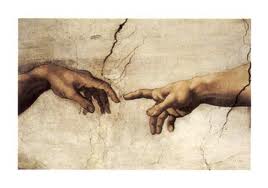Mario Monti: political perspectives
 |
| Michel Angelo -
Sistine Chapel ceiling
|
As Italians will choose a new government in elections
on 24 -25 February, the international press comments and evaluates the chances
for “il professore” to lead Italy again.
As a lifetime senator, Mario Monti cannot run for
office but can take part in an election campaign and can return to the post of
prime minister if asked by a party or coalition.
27 December 2012 Last
updated at 19:40 GMT
L'Osservatore Romano [the Vatican’s newspaper] said Mr
Monti, a loyal Catholic, had launched an appeal to restore the most noble sense
of politics to Italy.
The Pope, in his Christmas message, urged Italians to
reflect on "a hierarchy of values when making the most important of
choices". The remark was widely interpreted as coming close to endorsing
the technocrat leader.
On Christmas Day, Mr Monti sent his first tweet,
calling for political renewal: "There is no point in complaining, we must
commit ourselves. 'Rise up' in politics."
Insieme abbiamo salvato
l'Italia dal disastro. Ora va rinnovata la politica. Lamentarsi non serve,
spendersi si. "Saliamo" in politica!
23 December 2012 Last
updated at 13:29 GMT
Mr Monti said he was ready to lead any coalition
committed to his reforms.
Speaking at a
news conference in Rome, Mr Monti urged Italian parties not to destroy what he
said was his government's achievement in saving Italy from that crisis.
"That
financial emergency has been overcome," he said. "Italians can once
again hold their heads high as citizens of Europe."
"I'm not
siding with anyone - I'd like parties and social forces to side with
ideas," he said.
But he added:
"To the forces that show convinced and credible adherence to the Monti
agenda, I would be ready to give my advice, my encouragement and if necessary
leadership," he said.
26 December 2012
Passing courageous reforms while
promoting growth
In late June 2012, at a summit meeting of European
Union leaders in Brussels, Germany’s leader, Angela Merkel, found herself
facing a tenacious opponent: Mr. Monti — whom Ms. Merkel had helped to install
in office.
Mr. Monti had emerged as the uncontested leader of the
“pro-growth” forces, and he had persuaded Ms. Merkel to take perhaps one of the
largest steps toward European integration since the euro crisis began.
A canny tactician, Mr. Monti also enjoyed strong
support from President Obama, who had expressed concerns that the euro crisis
would lead to a recession in Europe that could drag the United States down with
it. Mr. Monti did not turn on Ms. Merkel. Indeed, they stayed in close contact
throughout the night of grueling negotiations.
As Ms. Merkel’s most trusted — perhaps only — ally in
southern Europe, Mr. Monti’s pushback was measured, respectful and built on a
strong shared belief with her that the 17 nations that use the euro should
eventually relinquish some sovereignty to Brussels in exchange for greater
protections for the euro.


Comments